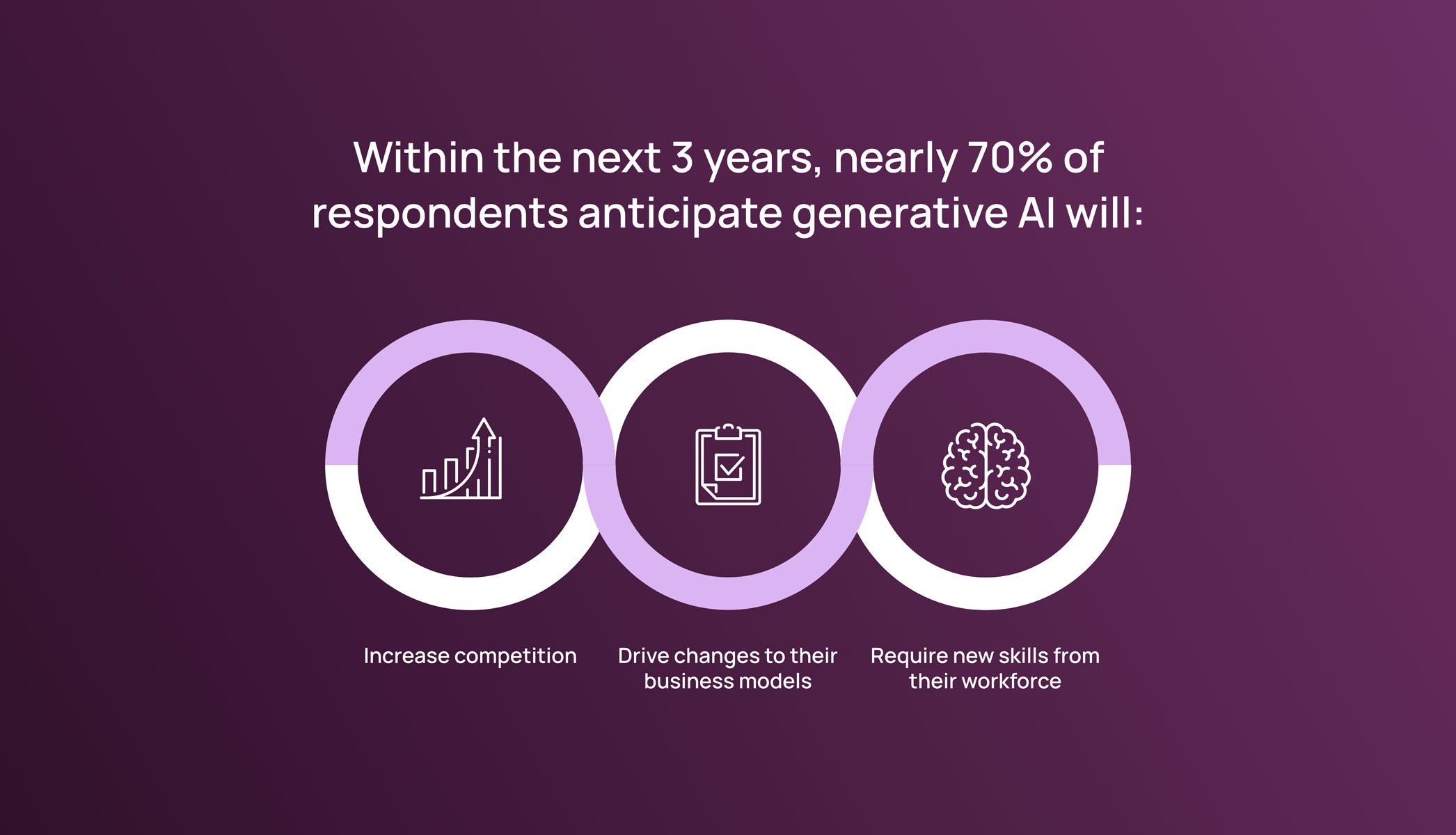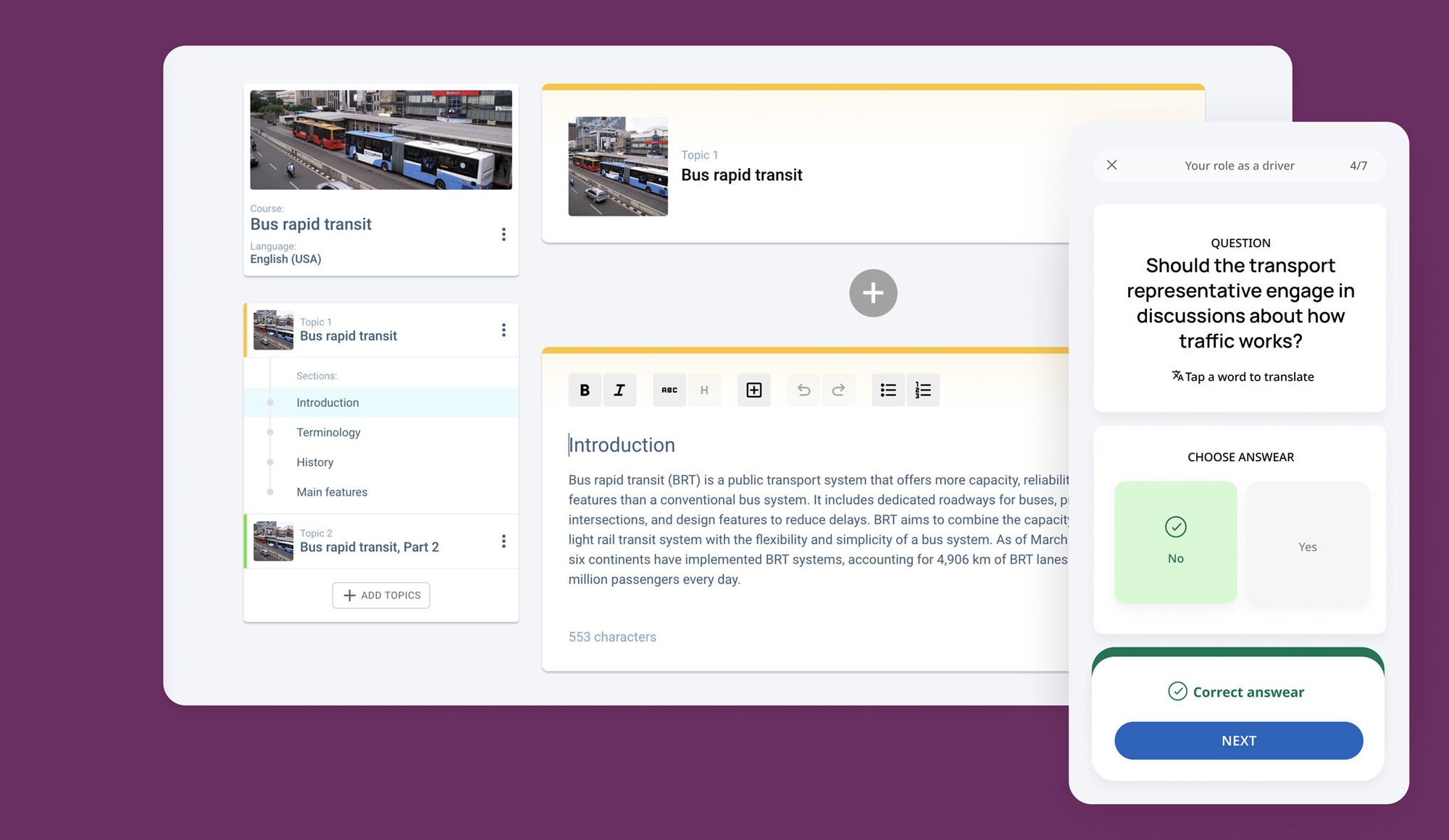Skills development in the age of AI
According to the survey, within the next three years, nearly 70% of respondents anticipate generative AI will increase competition, drive changes to their business models, and require new skills from their workforce.
Recent years have seen AI move from experimental and isolated applications to becoming a core component of strategic operational frameworks. This transition underscores a broader acceptance and integration of AI technologies, reflecting a shift from tentative exploration to widespread implementation across various business functions.
In the survey, 58% of CEOs believe that generative Al will improve the quality of their company’s products or services within the next 12 months. As we look to the upcoming year, the expectation isn’t just an increase in the adoption of AI technologies but a significant transformation in how these tools are leveraged to improve decision-making, streamline operations, and personalise customer experiences.
The next three years promise an even more dramatic shift, driven by the rapid advancements in generative AI capabilities. We anticipate three major transformations. First, the competitive landscape will be redefined as companies that effectively utilise AI to innovate and optimise their operations will gain a distinct advantage over those that don’t. This will necessitate a continuous investment in AI technologies and the development of strategies that leverage these tools for competitive differentiation.
Second, the change in business models will be significant. As AI technologies evolve, they’ll enable new ways of delivering products and services, necessitating businesses to rethink their value propositions and operational structures. This transformation may involve adopting platform-based models, using data more effectively, or finding new ways to engage with customers.
Lastly, and perhaps most crucially, the workforce will need to adapt. Already, the survey shows that 68% of CEOs believe that generative Al will increase competitive intensity in their industry. The demand for new skills will accelerate, emphasising digital literacy, data analysis, AI ethics, and strategic decision-making in an AI-augmented environment. Organisations will need to prioritise the upskilling and reskilling of their employees, ensuring they’re equipped to thrive in an AI-driven world. This means providing training in technical skills and promoting an adaptive mindset among the workforce, enabling them to navigate the ongoing changes with agility and confidence.







